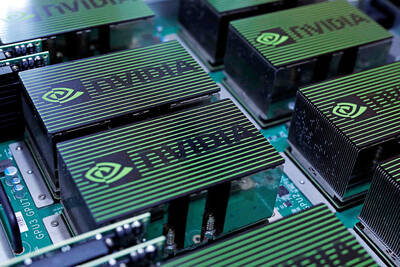Iceland’s special prosecutor issued indictments on Monday against two former top executives of collapsed Glitnir Bank claiming they committed fraud by handing out an unauthorized loan of more than 100 million euros (US$130.2 million) in early 2008.
Iceland’s financial system imploded in late 2008, its currency slumped and the nation is only just beginning to recover after a loan from the IMF and other lenders.
The two executives, former Glitnir CEO Larus Welding and head of corporate finance Gudmundur Hjaltason, are charged with abusing their positions by lending an investment firm some 10 billion Iceland krona — then worth about US$133 million — without any collateral and without consultation with other members of the bank’s risk management board.
The special prosecutor -estimates Glitnir’s loss on the loan at 53.7 million euros.
Welding and Hjaltason could face up to six years in prison if found guilty, according to the indictment.
The two are the first executives of Iceland’s top banks to be indicted for offences committed in the lead-up to the collapse of the financial system in October 2008.
A former permanent secretary of the finance ministry has been sentenced to two years in prison for insider trading. That case has been appealed to the Supreme Court.
Two top executives of the collapsed Byr savings & loans were also charged with fraud. They were cleared in a municipal court, but the case was also appealed to the Supreme Court.
Dozens of cases related to the banks’ role in the crash are under investigation by the Special Prosecutor’s office, set up to deal with the events leading up to 2008.

Leading Taiwanese bicycle brands Giant Manufacturing Co (巨大機械) and Merida Industry Co (美利達工業) on Sunday said that they have adopted measures to mitigate the impact of the tariff policies of US President Donald Trump’s administration. The US announced at the beginning of this month that it would impose a 20 percent tariff on imported goods made in Taiwan, effective on Thursday last week. The tariff would be added to other pre-existing most-favored-nation duties and industry-specific trade remedy levy, which would bring the overall tariff on Taiwan-made bicycles to between 25.5 percent and 31 percent. However, Giant did not seem too perturbed by the

AI SERVER DEMAND: ‘Overall industry demand continues to outpace supply and we are expanding capacity to meet it,’ the company’s chief executive officer said Hon Hai Precision Industry Co (鴻海精密) yesterday reported that net profit last quarter rose 27 percent from the same quarter last year on the back of demand for cloud services and high-performance computing products. Net profit surged to NT$44.36 billion (US$1.48 billion) from NT$35.04 billion a year earlier. On a quarterly basis, net profit grew 5 percent from NT$42.1 billion. Earnings per share expanded to NT$3.19 from NT$2.53 a year earlier and NT$3.03 in the first quarter. However, a sharp appreciation of the New Taiwan dollar since early May has weighed on the company’s performance, Hon Hai chief financial officer David Huang (黃德才)

NVIDIA FACTOR: Shipments of AI servers powered by GB300 chips would undergo pilot runs this quarter, with small shipments possibly starting next quarter, it said Quanta Computer Inc (廣達), which supplies artificial intelligence (AI) servers powered by Nvidia Corp chips, yesterday said that AI servers are on track to account for 70 percent of its total server revenue this year, thanks to improved yield rates and a better learning curve for Nvidia’s GB300 chip-based servers. AI servers accounted for more than 60 percent of its total server revenue in the first half of this year, Quanta chief financial officer Elton Yang (楊俊烈) told an online conference. The company’s latest production learning curve of the AI servers powered by Nvidia’s GB200 chips has improved after overcoming key component

UNPRECEDENTED DEAL: The arrangement which also includes AMD risks invalidating the national security rationale for US export controls, an expert said Nvidia Corp and Advanced Micro Devices Inc (AMD) have agreed to pay 15 percent of their revenue from Chinese artificial intelligence (AI) chip sales to the US government in a deal to secure export licenses, an unusual arrangement that might unnerve both US companies and Beijing. Nvidia plans to share 15 percent of the revenue from sales of its H20 AI accelerator in China, a person familiar with the matter said. AMD is to deliver the same share from MI308 revenue, the person added, asking for anonymity to discuss internal deliberations. The arrangement reflects US President Donald Trump’s consistent effort to engineer